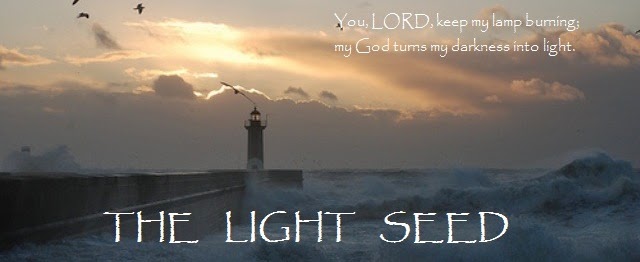 It
is the night of September 13, 1814. The British fleet are
bombarding Fort McHenry in the harbor at Baltimore, Maryland. Francis
Scott Key, a 34-year old lawyer-poet, is watching the attack from the
deck of a British prisoner-exchange ship. Key had gone seeking the
release of a friend. They were told that they had to remain aboard the
vessel until the end of the attack. When the battle was over, the
following morning, Key had his telescope on the fort and saw the
American flag was still waving. The sight of the tattered Stars and
Stripes was so moving that he pulled a letter from his pocket and began
to write the poem. This poem eventually became the national anthem of
the United States – “The Star Spangled Banner.”
It
is the night of September 13, 1814. The British fleet are
bombarding Fort McHenry in the harbor at Baltimore, Maryland. Francis
Scott Key, a 34-year old lawyer-poet, is watching the attack from the
deck of a British prisoner-exchange ship. Key had gone seeking the
release of a friend. They were told that they had to remain aboard the
vessel until the end of the attack. When the battle was over, the
following morning, Key had his telescope on the fort and saw the
American flag was still waving. The sight of the tattered Stars and
Stripes was so moving that he pulled a letter from his pocket and began
to write the poem. This poem eventually became the national anthem of
the United States – “The Star Spangled Banner.”
Oh, say, can you see, by the dawn’s early light,
What so proudly we hailed at the twilight’s last gleaming?
Whose broad stripes and bright stars, thro’ the perilous fight’
O’er the ramparts we watched, were so gallantly streaming.
And the rockets red glare, the bombs bursting in air,
Gave proof through the night that our flag was still there.
Oh, say, does that star-spangled banner yet wave
O’er the land of the free and the home of the brave?
It does, sir. Regardless of a bunch of little snot-nosed, ungrateful punks.
A
social media challenge asks people to make videos of themselves
desecrating the U.S. flag and post them online, Shawn Bevans reported at
the Independent Journal Review on Thursday. The challenge is supposedly
in honor of Eric Sheppard, a Valdosta State University student wanted
in Georgia after his gun was reportedly found on campus during a series
of protests.
Sheppard,
Campus Reform said, is a member of the radical New Black Panther Party
and describes himself as a terrorist against white people. Sheppard was
part of a protest that involved stomping on the flag. The flag was
rescued by Michelle Manhart, a female veteran of the United States Air
Force, who was detained after securing the banner.
Sheppard's
father has asked that he turn himself in to authorities. But, Campus
Reform said, some have decided to show their support with a social media
movement that includes videos and photos posted to Facebook and
Instagram.
It
has also made the rounds on Twitter, angering a number of people. Some
of those posting on the social media site posted pictures of protesters
defecating on the flag.
"I
dare someone to try the #EricSheppardChallenge in front of me," one
person said Saturday. "I will leave you bloody on the ground. Have some
respect."
"The
#EricSheppardChallenge is offensive, disrespectful, and illegal,"
another person said. "Sooo...rioting and looting didn't get America to
side with you, but you think stepping on the flag will?" another Twitter
user asked.
The
challenge also has its supporters. One person, for example, said "there
are genuinely american's (sic) angrier at the desecration of a piece of
material than the loss of black lives."
In
a video posted to her public Facebook page, activist Erica Walker
dances on a flag laying on the ground after issuing a profanity-laced
message. "F**k yo flag," she says in the video, Campus Reform added.
Walker also provided an "out" for those who do not want to desecrate the
flag.
"If
you don't want to do the #EricSheppardChallenge, fine, then donate
$100 to a homeless veteran," she said on Facebook. "There's plenty of
them in Atlanta and all across America, thanks to the failed VA
department."
"According
to her LinkedIn page, Walker is a radio talk show host and is currently
employed at the Ryan Cameron Foundation, a nonprofit that aims to
empower high school students in the Atlanta area," Campus Reform said.
"She was previously employed at CBS Atlanta."
So where does this disrespect for Old Glory come from?
It starts at the top.
Let’s
go back to 9/13/11, 2 days after America solemnly remembered the 10th
anniversary of the worst attack ever on American soil by Islamic
Terrorists. James Robbins wrote the following story for The Washington Times,
in which he illuminated a whispered conversation between the President
of the United States, Barack Hussein Obama, and First Lady, Michelle
Obama:
The
internet was buzzing this week with video of First Lady Michelle Obama
apparently showing extreme disrespect to the American flag at a ceremony
in honor of the victims of the September 11, 2001 terror attacks. As
police and firefighters fold the flag to the sound of marching
bagpipers, a skeptical looking Mrs. Obama leans to her husband and
appears to say, “all this just for a flag.” She then purses her lips and
shakes her head slightly as Mr. Obama nods.
And, it filters to the home.
Back
in the 60s, President Lyndon Johnson (whose big hand I once shook, at
his ranch, as a little boy, after his presidential term) and the
Democrats, brought forth a plan, called “the Great Society”. It was
decided, in order to ensure that everyone would have an equal
opportunity in America, that Uncle Sugar would step in to fill in the
gaps.
Two seminal pieces of legislation were passed.
First,
the Civil Rights Bill that JFK promised to sign, before his
assassination, was passed into law. This Act banned discrimination based
on race and gender in employment and ending segregation in all public
facilities.
It also helped to cement in stone, minorities’ loyalty to the Democratic Party, which continues to this day.
The
second bill that LBJ signed into law was the sweeping ECONOMIC
OPPORTUNITY ACT OF 1964. It created the Office of Economic Opportunity
whose stated purpose was to attack the roots of American poverty. A Job
Corps was then established to provide vocational training.
A
preschool program designed to help disadvantaged students arrive at
kindergarten ready to learn, named HEADSTART, was then established. Then
came VOLUNTEERS IN SERVICE TO AMERICA (VISTA), which was set up as a
domestic Peace Corps. Schools in impoverished American regions would now
receive volunteer teaching attention. Federal funds were sent to
struggling communities to attack unemployment and illiteracy.
What
Johnson told Americans, as he campaigned in 1964, was that the
establishment of this “Great Society” was going to eliminate the
problems of America’s poor.
It had the opposite effect
The
Great Society created a dependent class, which, instead of diminishing
as it’s members joined the workforce, increased from generation to
generation, relying on the federal government to provide their every
need.
Uncle
Sugar became Mother, Father, Preacher, and Doctor to generations of
Americans. This “plantation mentality” continues to this day.
A few years ago, I worked at our county’s State Employment Center Office.
While
at the Employment Office, I was able to observe Americans, both Black
and White, down on their luck, struggling to find work and survive in
this economy. Unfortunately, the overwhelming majority of “unemployed ”
who came to this particular office were Black.
I saw Black American Families whose existence living on the Government Dole, had become generational.
It
is these people whom Obama and the Democrats have hypnotized into
believing that Uncle Sugar loves them, and is their only solution to
surviving a stifling existence.
They are so, so wrong.
The strength and vitality of America does not come from the benevolence of a Nanny-state Federal Government.
As the greatest American President of my lifetime, Ronald Reagan said:
The nine words you never want to hear are: I’m from the Government and I’m here to help.
Being
enslaved to the Government Dole steals one’s ambition. It takes away
any impetus or desire to create a better life for yourself and your
family, to challenge yourself to pick yourself up by your bootstraps and
pursue the American Dream. It makes you reliant on a politically
motivated spider’s web full of government bureaucrats who view you and
your family as job security.
I
watched American citizens trapped in this web of government
bureaucracy, so numbed of any initiative that they once had, that they
seemed offended that they actually had to prove that they inquired about
three jobs that week in order to keep their “benefits”. Others seemed
puzzled that they had to search through the state data base and pick out
a job that they wanted to talk to an interviewer about receiving a
referral to, and weren’t just simply handed a job when they walked
through the door.
Instead
of moving forward, by exercising the self-reliance that Dr. Martin
Luther King, Jr. preached so well, these people I saw, were content on
being “taken care of” by Uncle Sugar, as if being held down by their own
poor, miserable circumstance, was a good thing.
I
am sure that it would have offended you, Dr. King, to hear the tenants
of Marxism, i.e., “sharing the wealth” and Class Envy, being “preached”
to the same Black Americans whom you tried so mightily to raise up and
inspire.
For
the past year,the results of LBJ’s “Great Society” have been the lead
story in every television newscast, on every newspaper front page, and
on every internet news/political website.
Dr
King, I am sorry to tell you that racism and injustice is still going
on in America. Unfortunately, it will not end any time soon, There are
too many race-baiters profiting off of it.
Including, the President of the United States.
The
part of your magnificent speech about “the content of their character”
has been purposefully ignored by the professional race-baiters and
assorted politicians (but, I repeat myself), once again, in the
aftermath of the death pf Career Criminal Eric Garner.
Dr. King, your call for self-reliance took a back seat to their self-serving agenda, a long time ago.
So, how can we expect these young people to respect OUR FLAG, when they have no respect for THEMSELVES?
To
those of you read this today, who somehow believe that desecrating OUR
FLAG, makes you more elightened that the rest of us, and is your
"right", okay.
However,
it is my right, as the son of an American Soldier, who stepped off a
perfectly good boat, in a hail of gunfire, onto Normandy Beach to
protect our American Freedom, to push you off of Old Glory and to take
it away from you.
Yes, children, including Mrs. Obama. All this for a flag. And, for those who gave the ultimate sacrifice in its service.
Until He Comes,
KJ



